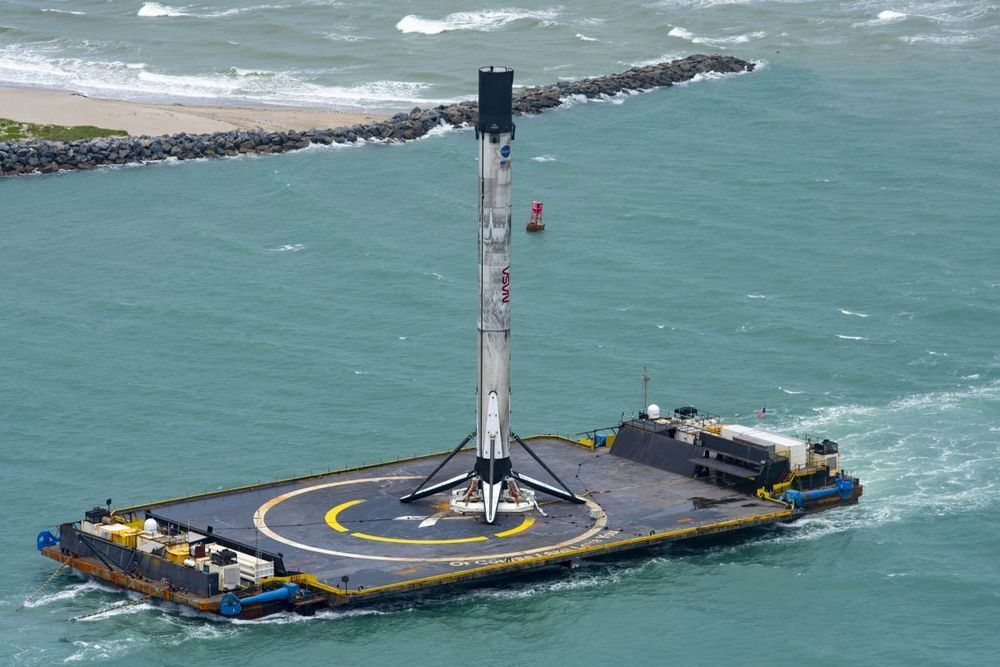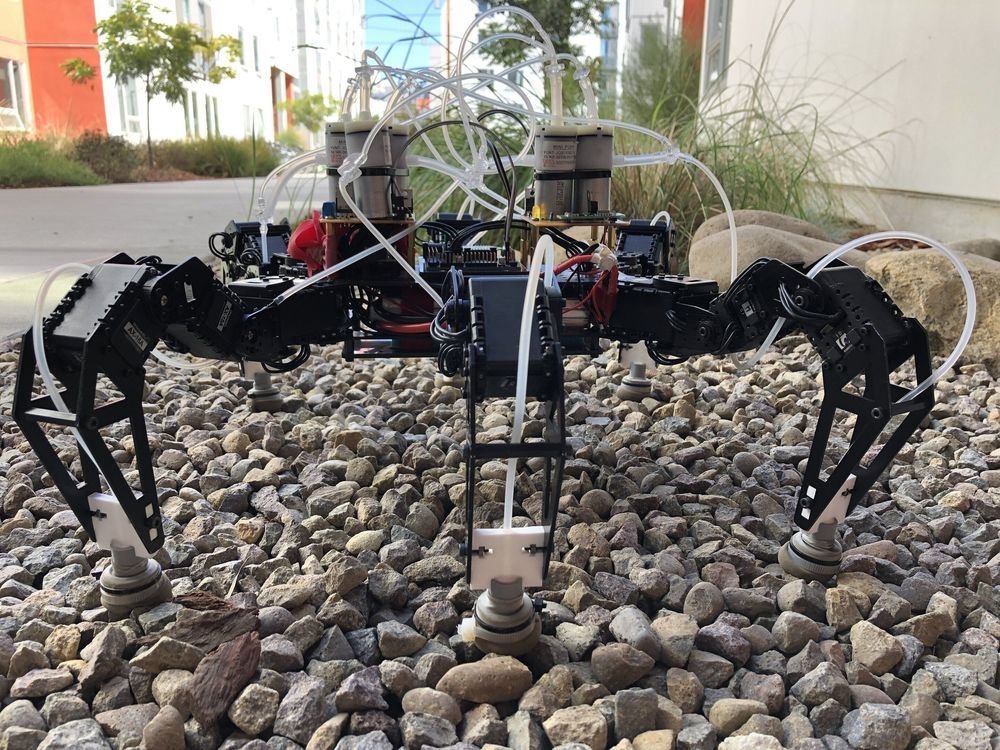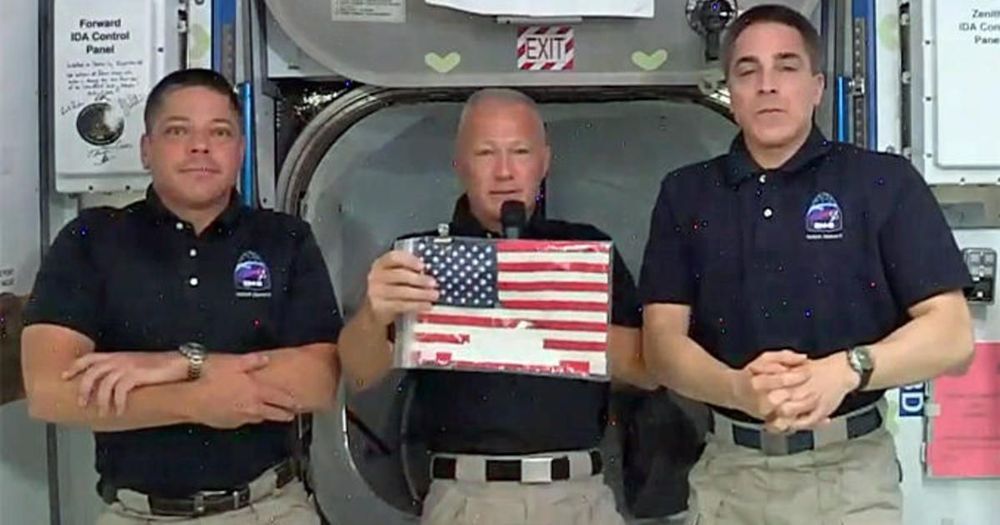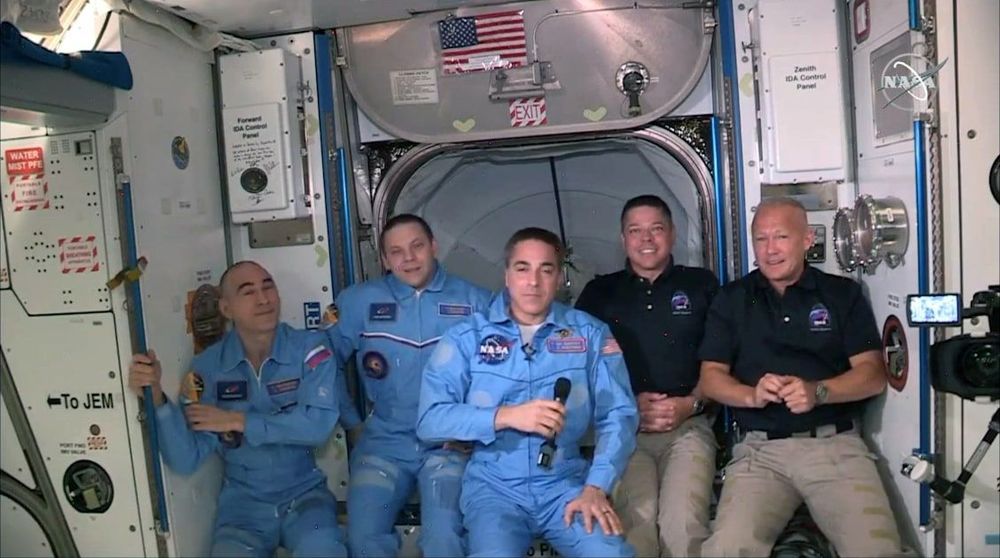The first stage of the Falcon 9 rocket that launched SpaceX’s Demo-2 mission arrived in Port Canaveral, Florida, on Tuesday (June 2).



Roboticists at the University of California San Diego have developed flexible feet that can help robots walk up to 40 percent faster on uneven terrain such as pebbles and wood chips. The work has applications for search-and-rescue missions as well as space exploration.
“Robots need to be able to walk fast and efficiently on natural, uneven terrain so they can go everywhere humans can go, but maybe shouldn’t,” said Emily Lathrop, the paper’s first author and a Ph.D. student at the Jacobs School of Engineering at UC San Diego.
The researchers will present their findings at the RoboSoft conference which takes place virtually May 15 to July 15, 2020.


Following a dramatic launch, 19-hour voyage and successful docking procedure, pioneering astronauts Robert Behnken and Douglas Hurley have left the Crew Dragon and are now aboard the International Space Station (ISS). The pair emerged from the Crew Dragon capsule at around 1:15 PM ET and were greeted with bear hugs by astronaut Christopher Cassidy and cosmonauts Anatoli Ivanshin and Ivan Vagner. While describing the ride as less smooth than the space shuttle, Hurley said he “couldn’t be happier” about the Crew Dragon’s performance.
The astronauts, who christened the Crew Dragon “Endeavor,” chatted with NASA executives after their arrival. “It’s great to get the United States back in the crewed launch business,” said Hurley. “And we’re just really glad to be onboard this magnificent complex.” Earlier, SpaceX founder Elon Musk said he was “quite overcome with emotion,” adding “this is hopefully the first step on a journey towards civilization on Mars.”

The Dark matter engine is the key to the extreme acceleration capabilities of the modern space ship. Invented by Professor Hubert J. Farnsworth, the engines on the Planet Express ship harness the power created by burning dark matter in large furnaces, channels it through an afterburner that gives 200% fuel efficiency and propelles the ship through space fast enough to cover the whole universe in a matter of days.
How it works Edit
Let’s look at the real universe example of Rigel, a star in Orion’s Belt approximately 900 light-years away from Earth. This means that even traveling at the speed of light (300,000 km/s) it would take 900 years to get there. Traveling at 9 times the speed of light (2,700,000 km/s) it would take 100 years to get there and at 100 times the speed of light (30,000,000 km/s) it would take nine years. Albert Einstein’s famous statements that it would be mathematically impossible to travel faster than light seem to have held up through out the 3rd millennia and although in 2208 the scientific community allegedly raised the speed of light so that they could go faster, the problem that one cannot go faster than the speed of light remains.
Liftoff!
SpaceX delivered two astronauts to the International Space Station for NASA on Sunday, following up a historic liftoff with an equally smooth docking in yet another first for Elon Musk’s company.
With test pilots Doug Hurley and Bob Behnken poised to take over manual control if necessary, the SpaceX Dragon capsule pulled up to the station and docked automatically, no assistance needed. The hatches swung open a few hours later, and the two Dragon riders floated into the orbiting lab and embraced the three station residents.
Unlike the SpaceX and NASA flight control rooms, where everyone was spaced well apart, there was no social distancing or masks needed in orbit since the new arrivals had been in quarantine for many weeks.

#ICYMI: NASA astronauts Bob Behnken and Doug Hurley aboard the SpaceX Dragon Endeavour arrived at the International Space Station and docked today, May 31, 2020, at the station’s Harmony port at 10:16 a.m. ET.
Following soft capture, 12 hooks were closed to complete a hard capture at 10:27 a.m. ET.